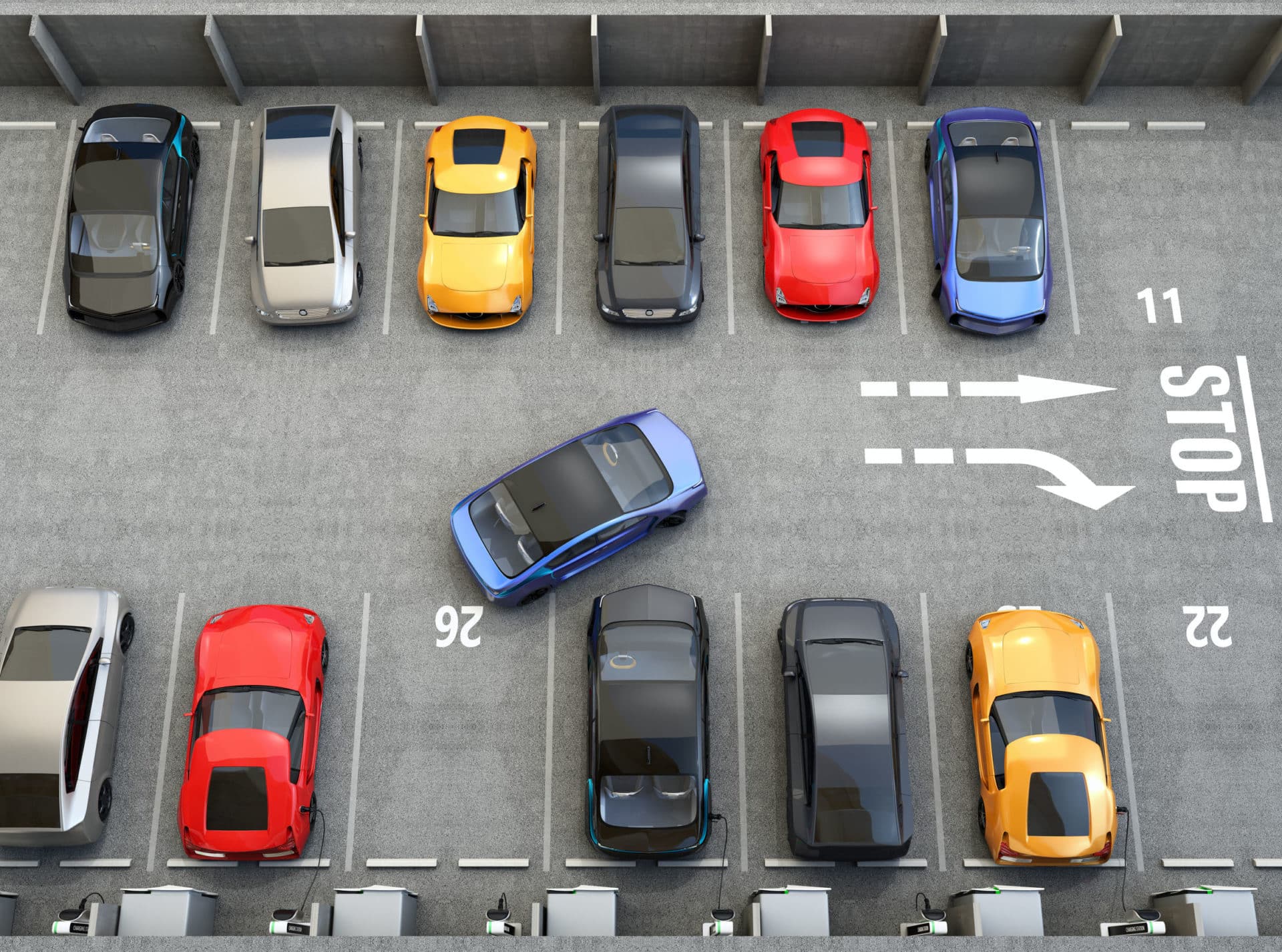Free Consultation
Free Consultation

You probably don’t think of a parking lot as dangerous places to be – after all, the speeds are much lower than on the road, right?
In reality, the high density of cars moving in all directions – combined with heavy pedestrian traffic – makes parking lots a breeding ground for crashes. In fact, about 20% of all car crashes occur in parking lots. Although most parking lot crashes are not high-impact, they may still be dangerous or even deadly, especially when pedestrians are involved.
For example, a Long Island woman was recently struck by a car backing out of a parking space and fatally injured. Police have not yet filed criminal charges, reporting that the driver accidentally stepped on the gas pedal rather than the brake. A tragic accident – but not a blameless one.
Parking lot crashes may also result in costly damage to your car. A New York man is suing a Tribeca parking garage for $19,500 in damages to his Blu Tour De France Ferrari Spider. He also alleges that the crash caused the car’s value to fall from $347,000 to $207,000, as any history of a crash significantly devalues a mint-condition super car.
Clearly, parking lot crashes can be quite serious. That’s why we’ve put together a guide covering how to avoid parking lot crashes, and also how liability works should you be involved in a parking lot collision.
You can protect yourself and your vehicle from parking lot crashes by following a few simple tips to keep your distance from other cars and remain on the lookout for pedestrians.
Slow Down to Buy Time to React
Frequently, the biggest danger in parking lots is other cars. People may drive too fast, cut across empty rows, or ignore signs, putting other drivers and pedestrians at risk for a crash. To deal with erratic drivers, slow down.
This allows extra time to react and avoid a collision should another car do something unexpected. Also, be cautious when turning corners and backing up.
Expect Pedestrians
Parking lots are full of pedestrians coming and going from their cars, many of whom may be distracted and not paying attention to traffic. Even if the pedestrian isn’t paying attention, you are obligated to give the pedestrian the right-of-way in most cases.
Be aware of any pedestrians in your vicinity, and be ready to react should a pedestrian unexpectedly walk in front of your car. Also, be sure to obey crosswalks in the parking lot.
Keep Your Distance
Door dings and scratches are hard to avoid. Even if you park courteously and carefully, another driver’s negligence could still result in damage that can’t be prevented. To reduce the chance of damage to your car, park away from other vehicles at the edge of the lot when possible.
In parking lots, cars are moving in every direction, and it can often be unclear who has the right-of-way. Therefore, determining who was at fault for a parking lot accident can be tricky, which makes it difficult to recover damages for serious injuries.
If you are in a parking lot crash, always be sure to exchange contact information with the other driver, and also with any witnesses. Taking pictures after the accident can also be helpful later on.
Parking Lot Right-of-Way Rules
In most parking lots, there are multiple lanes with cars parked on both sides, and through lanes around the lot’s perimeter, which allow drivers to enter the parking lanes.
Generally, cars in the through lanes have the right-of-way, and drivers approaching from parking lanes must yield.
Therefore, if a driver pulls into a through lane attempting to exit a parking lane and collides with a vehicle in the through lane, the driver in the parking lane would be liable.
However, if a driver in a through lane fails to obey a stop or yield sign that gives right-of-way to drivers exiting a parking lane, the driver in the through lane would be held liable.
Pulling into and Out of Parking Spaces
When backing out of a parking space, cars traveling in the parking lane have the right-of-way, and any collision would be the fault of the driver pulling out of the parking space.
Collisions may also occur when two vehicles back into one another while reversing out of spots on opposite sides of a parking lane. In this case, determining liability can be tricky, as both drivers have a duty to make sure that it’s safe to back up before doing so.
When one car has already started backing out, the driver of the vehicle on the opposite side of the lane is required to wait until this car has finished backing out and it is safe to back up.
However, it is often unclear which car started backing out first, making liability difficult to determine. In these cases, both drivers are generally held at fault.
Bottom line?
Parking lots are a common site of car crashes. Don’t let your guard down just because you’ve exited the roadway. You can reduce your chances of getting into parking lot crashes, however, by slowing down and expecting the unexpected, allowing you to react to erratic drivers and pedestrians in time.